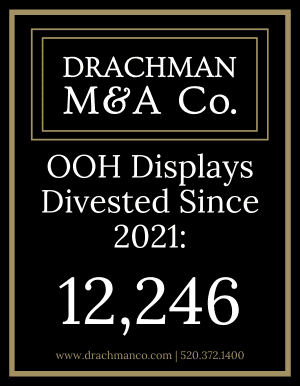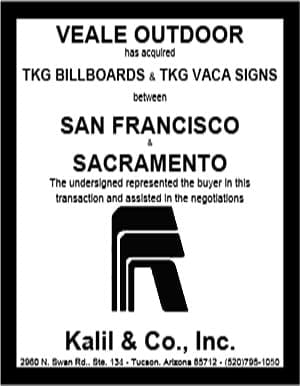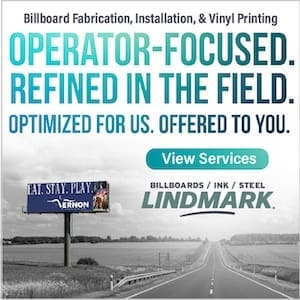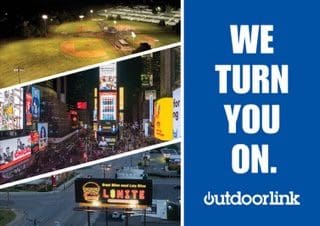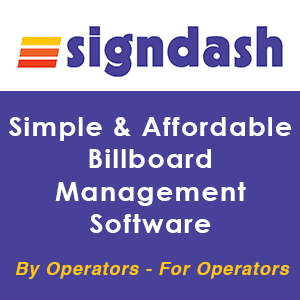Insider asked Daniel Fleischer of the automated out of home sales platform Blip to talk about how ad messages should change based on the coronavirus.
Is Blip changing anything related to advertising emphasis at the moment?

Some may find it surprising to hear that we’re seeing even more opportunity to help advertisers and the public, given the right approaches.
Blip is proactively working with advertisers to optimize their campaign approach. For example, in-person businesses should consider scaling back their short-term, transactional advertising if it isn’t likely to pay dividends. However, scaling back their long-term marketing and branding is a mistake and runs the risk of turning a short-term disruption into a long-term crisis.
In general, Blip’s advertisers aren’t really spending any less than before because they are already used to running campaigns with us that don’t generally impose any minimum spend, or require them to sign any long-term commitments. We have thousands of advertisers who already run short-burst campaigns on very reasonable budgets who don’t see a big risk in maintaining the status quo, albeit with some tailored messaging and targeting. In fact, we find ourselves working with an increased number of advertisers who appreciate our input in coming up with messaging that is relevant and helpful to audiences by providing new information related to products and services that can benefit the concerned public.
For those advertisers who are concerned that their in-person businesses will be negatively impacted, we suggest creative approaches that highlight new remote-service possibilities. We work with the advertiser to tailor their message and targeting, reinvigorating a customer that might otherwise pull back their ad spend.
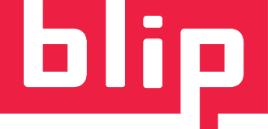 Here’s a real world example: a local restaurant advertises on typical high-traffic commuter highways, but now finds itself temporarily closed and must adhere to the social isolation regulations recently enacted in several states. This restaurant owner can go to Blip’s website and set a reasonable budget, pick different locations that are more likely to hit its customers close to their homes, and then use our free online tools to self-generate excellent and optimized creative for the billboard. A credit card is entered and a campaign is executed without any long term contract or commitment. The whole process takes only 5 minutes. The ad can be up on as many billboards as was selected once the media owner has quickly approved the creative online. Because Blip provides the right guidance, real-time tools, and a no-risk model for spending any budget, our advertisers are helping their businesses and the general public.
Here’s a real world example: a local restaurant advertises on typical high-traffic commuter highways, but now finds itself temporarily closed and must adhere to the social isolation regulations recently enacted in several states. This restaurant owner can go to Blip’s website and set a reasonable budget, pick different locations that are more likely to hit its customers close to their homes, and then use our free online tools to self-generate excellent and optimized creative for the billboard. A credit card is entered and a campaign is executed without any long term contract or commitment. The whole process takes only 5 minutes. The ad can be up on as many billboards as was selected once the media owner has quickly approved the creative online. Because Blip provides the right guidance, real-time tools, and a no-risk model for spending any budget, our advertisers are helping their businesses and the general public.
That same restaurant owner might also consider diverting some online ad budget to OOH, because the affordable broadcast nature of our medium will help that business owner recover traffic more quickly post-crisis.
I’m also seeing an interesting opportunity that is bringing new, unexpected revenue to OOH. The NBA and NHL season cancellations have left some larger advertisers with some unusable TV budget. This has driven some of them to work with Blip and our partner Adkom, to leverage our flexible model and repurpose a smaller portion of that budget to OOH. Even a small fraction of TV budgets represents an excellent OOH targeting opportunity.
Overall, Blip is in a strong position to help media owners maintain their revenue as well as help advertisers and the general public.
Are there advertiser categories with whom out of home ought to be speaking right now?
OOH operators should be engaging as much as possible with any vertical that has the opportunity to adapt (or continue to provide) products and services that help the public as they deal with social isolation, including working from home. Here are just a few examples among many, which I’m taking from Blip’s real-world experience already:
- Remote collaboration technology
- Home healthcare services
- Food and beverage: offering new delivery service, or existing delivery providers who are adapting their message around increased precautionary measures
- Any professional services providers such as financial, medical, legal, social, that have the ability to provide consultation remotely and want to inform the public.
The list honestly goes on and on, but we’re finding that all of these businesses are interested in exploring reasonable advertising options that help them preserve or even expand their customer base. In general we in the OOH community can help so many businesses provide valuable information to a distraught public. We can do our part to provide reassurance, guidance, and information to a public that needs it.
[wpforms id=”9787″]
Paid Advertisement
